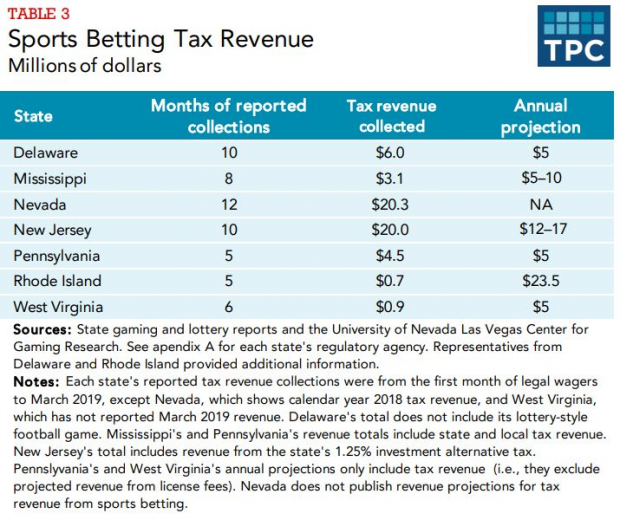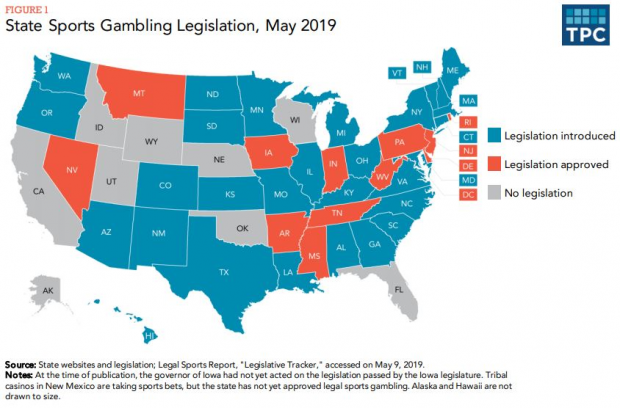It’s been just over a year since the Supreme Court opened the door for states to allow sports betting. Anticipating a budgetary boost from sports betting tax revenues, seven states rushed through that door to join Nevada, where sports gambling was already legal: Delaware, Mississippi, New Mexico, New Jersey, Pennsylvania, Rhode Island and West Virginia. All had passed legislation approving sports betting before the high court’s ruling. Several others are set to follow.
Has the bet paid off? Nearly $8 billion has been legally wagered since the Supreme Court’s decision, including $3 billion in the new markets, according to the American Gaming Association.
But a new report published this week by Richard C. Auxier of the Tax Policy Center finds that just over half the states that now allow sports betting are in line to meet their tax revenue projections. Some states — most notably New Jersey, which allows online wagers — are set to far exceed their projections, while others, like Rhode Island, are falling well short. Officials say the shortfalls are likely the result of limited online gambling options and low consumer awareness of legal sports betting in those states, according to Bloomberg Tax.
Auxier’s report also notes that none of the state revenue projections for sports gambling revenue came close to representing 1% of annual general revenue. “States can collect millions of dollars in tax revenue from legal sports betting, but that tax revenue will always be relatively small and volatile,” it says. “As such, politicians should not overpromise what the revenue will do for state budgets, and legislators absolutely should not make critical spending programs dependent on that revenue.”
That note of caution likely won’t do much to keep states from betting on sports gambling. David Forman, the senior director of research at the American Gaming Association, told Bloomberg that 18 to 20 states in total could have sports betting in place a year from now.
Here’s where each state stands on legal sports betting:







